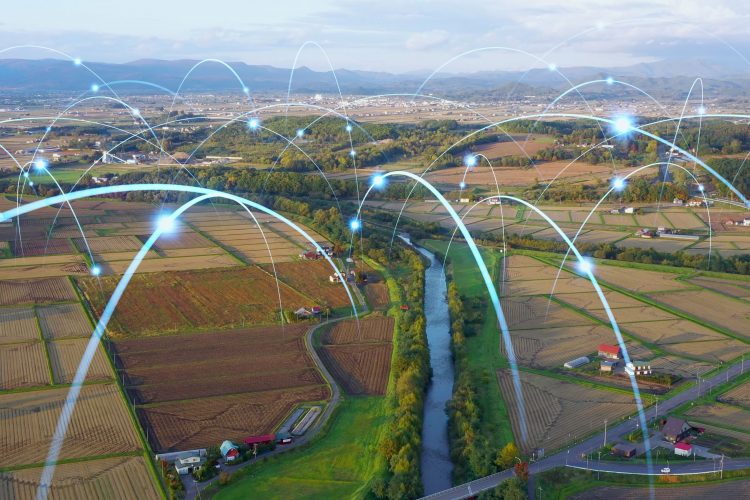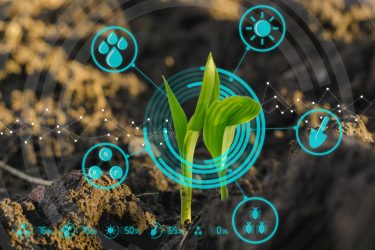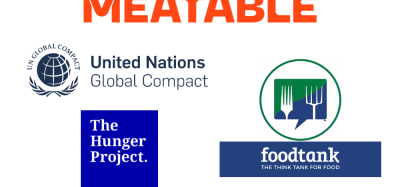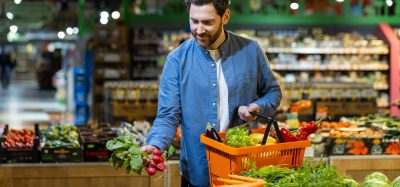We need an AgTech revolution
- Like
- Digg
- Del
- Tumblr
- VKontakte
- Buffer
- Love This
- Odnoklassniki
- Meneame
- Blogger
- Amazon
- Yahoo Mail
- Gmail
- AOL
- Newsvine
- HackerNews
- Evernote
- MySpace
- Mail.ru
- Viadeo
- Line
- Comments
- Yummly
- SMS
- Viber
- Telegram
- Subscribe
- Skype
- Facebook Messenger
- Kakao
- LiveJournal
- Yammer
- Edgar
- Fintel
- Mix
- Instapaper
- Copy Link
Posted: 10 August 2021 | Her Excellency Mariam Almheiri | No comments yet
Against the backdrop of devastating forest fires and floods, coupled with the food accessibility challenges Covid brought to light, Her Excellency Mariam Almheiri calls for a worldwide AgTech revolution to secure humanity’s survival.


The past two years have exposed new cracks in the security of our food supply and shed light on the fragility of the ecosystem that has come to not only feed but also characterise our interconnected, globalised world. It has shown the need for urgent action to transform our agricultural practices and invest in agricultural technology innovation if we are to prevent long-term devastation from climate change.
COVID-19 has put food security on the national agenda in the UK, as it has for many countries worldwide. Temporary food shortages highlighted the role of complex trade agreements and supply chain logistics in dictating the availability of food, as well the environmental influence our global dependence on complicated supply chains and fresh food imports is having.
It was therefore encouraging to see that the UK’s new National Food Strategy outlined the growing importance of food security. The report rightly deemed it a “largely invisible” issue that “the public tend not to think about much, until something goes wrong”. It made the crucial connection to climate change, noting that widespread harvest failure, as a result of our current agricultural practices, could be the next shockwave to hit the world’s food system.
A new approach to farming
Rethinking modern agriculture will be imperative to innovating against global food shortages and ensuring our survival. It is clear to see that most current forms of agriculture pose existential threats to the food system, with the way we produce food exacerbating climate change, which in turn threatens our food supply.1 This circular problem requires a fundamental change to the way we farm and produce food of all types, which is why investment in agricultural technology is so essential – including the UK’s recommended £1 billion commitment to ramp up innovation in its food system.
We have a similar priority in the United Arab Emirates (UAE), looking at how new technology can change the future of food in our country and at a global scale by allowing us to produce food in controlled, human-made environments that yield locally sourced, higher quality and sustainable products.
It is exciting to see how AgTech is developing across the globe; countless companies are pioneering the way for a sustainable agricultural revolution which tackles the volatility of global food supply chains and are providing locally sourced food with higher nutritional value that is adapted to unprecedented climate issues.
Their work can inspire us all. For example, Nanoracks, a US-based company, is harnessing AgTech to develop farming in extreme locations, producing food in space and the hottest climates on Earth. Similarly, Australia’s Has Algae is finding ways to adapt food to warming temperatures, incorporating microalgae which thrives in arid climates to make foods such as pastas, yogurts, ice creams and bread.

Faced with some of the hottest temperatures in the world, the UAE is also investing in new ways to advance sustainable approaches to agriculture technology. Pure Harvest and Madar Farms both use high-tech greenhouses to provide ‘closed climates’ that enable fresh salads and tomatoes to be grown in the desert sustainably and cost-effectively. They now take centre stage in our supermarkets.
Fish Farm, a closed loop farm in the UAE, also supplies our supermarkets with fresh fish, including salmon grown literally in the desert – again, sustainably and at effective price points, and without the negative environmental impacts of open-sea farming. We also have large scale oyster and prawn production facilities that export seafood from the UAE – using our warm, clean waters to brilliant effect with zero negative impacts on the ecosystem. These innovative farms, both closed systems and traditional, reduce our dependency on imported fish and are a testament to the possibilities of AgTech in futureproofing global food security.
Scaling up novel solutions
Collaboration will be the catalyst for our future global AgTech revolution. While these companies are producing cutting-edge innovations, the question of scale is key if we want to have an impact. The traditional forms of farming that feed billions of people continue to have a significant climate impact, limit our biodiversity, and remain vulnerable to supply chain and weather shocks. We need global collaboration to take the success stories from start-ups to international scale – producing reliable sources of food where they are needed. There is no doubt that technology and innovation will define the future of food.


The UAE has several investment and innovation platforms to support other nations and our own, as well as dedicated businesses and researchers focused on advancing science and technology. For example, the International Center for Biosaline Agriculture (ICBA) is an international, non-profit agricultural research center based in Dubai which is conducting innovative and experimental research into biosalinity (using saline water for irrigating agricultural crops), helping farmers in marginal environments to produce valuable proteins and carbohydrates. This research is increasingly being seen as not only relevant but essential to countries looking to mitigate climate change impacts.
It’s through collaboration and investment that we will create opportunities for small agtech start-ups to grow at a rapid rate and expand to global markets, assisting governments in achieving global food security targets. And we are keen to both collaborate and invest, globally and here in the UAE, where we are offering an enabling environment for agtech pioneers to thrive and flourish.
Addressing food security – as part of our approach to trade, our commitment to sustainable development and our need to support communities – will only grow more urgent. An aggressive increase in investment in agtech companies, research institutes and university programmes will help nations solve these challenges, reducing their reliance on imports, ensuring a steady supply of locally sourced foods to feed their populations, whilst tackling climate change in the process.
After the unsettling news of extreme weather events in the past few months, with extreme flooding in Western Europe, China and the UK, as well as extreme heat in Canada, Greece and the United States, killing hundreds and devastating communities; coupled with the recent IPCC report, we have never been so acutely aware of the existential threat that climate change poses. Now is the time to change our agricultural practices.
As a driver of climate change and biodiversity loss, but also an essential part of the solution, it has never been more important to look at how we can responsibly source our food and adapt to inevitable rising temperatures. Faster, deeper innovation in AgTech is the solution.
About the author
Her Excellency Mariam Almheiri is the United Arab Emirates Minister of State for Food & Water Security, and a member of the World Economic Forum’s Global Future Council on Food System Innovation.
References
- Page 134 of the National Food Strategy









